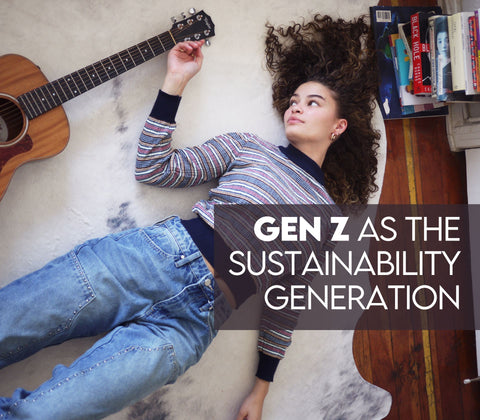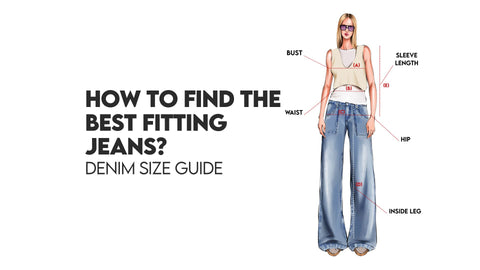Fast fashion brands have gained fame because of their affordable and handy collections. However, over the years, there has emerged in the fashion world a sustainability-oriented movement. Such a fashion movement was encouraged highly by commitment in Generation Z towards eco-friendly practices. In contrast with fast fashion, sustainable fashion focuses on protecting the environment as well as facilitating the local communities.
But who exactly is Generation Z?
Generation Z is a demographic cohort born between 1997 and 2012, the only generation that will play an important role in shaping the future of our society through their peculiar values and reflective responses to a set of critical questions, for example, the critical question of climate change. The attitude and approach they would take toward such emerging burning issues will surely have a strong and lasting impact on the future course through which the world will address and face challenges in the next three decades.
Does Generation Z show any concern about sustainability?
Generation Z is coming of age and solidifying its position as the generation of sustainability, showing the increasing awareness about the environment. A considerable deal of this generation has a marked tendency to lean towards companies concerned with the environment in their lines of production and product lines, and would spend up to 10% more on sustainable products compared to traditional ones. As a matter of fact, an astonishing 75% of consumers in the category of Gen Z attach more importance to sustainability over the brands of the products they purchase.

The Role of Community and Collective Action
Gen Z creates involved communities of shared values over pressing issues through digital platforms. Within these spaces, they frequently have influential discussions on key topics, such as mental health and sustainability, which are at the heart of modern society's concerns. Furthermore, all this collective activity in climate marches and energizing social media campaigns creates a feeling of solidarity among people for common work towards a common goal-a sustainable future for all.
The need for full systemic support
Individual actions are important but perhaps not sufficient in dealing with the scale of the challenges at hand regarding climate-related mental health issues. The demand is growing louder for systemic solutions that embed mental health support into sustainability initiatives, starting from education all the way through to professional help by individuals trained to understand climate anxiety.

Fast Fashion and Consumerism
Fast Fashion refers to the clothing lines, which are produced at a very high speed and at reasonable prices thus enabling them to keep pace with the latest trends, which emerge around the world. Though these garments are attractive for consumers to buy due to their affordability, yet the various practices along with modes of production related to fast fashion have deleterious consequences on individuals and the environment as a whole.
Ethical Issues in Detail
Fast fashion depends on the utilization of sweatshops and child labor overseas. Workers must suffer from pittance wages, unhygienic work conditions, and even abuses, just to keep prices as low as possible.

The Psychological Impact of Fast Fashion
The constant pressure of being in step with the trends that seem to change at a very fast pace may eventually lead to consumer fatigue and serious detachment from the real cost of their purchases. The shocks to individual well-being associated with this are not limited but have larger repercussions on the ecosystem as a whole. Similarly, Gen Z is increasingly sensitive to the psychic toll wrought by unsustainable practices that persist in different fields. This awareness then mobilizes them to strongly demand a fashion industry prioritizing ecological balance and mental health for members of society.
What is Slow/Sustainable Fashion, anyway?
It is called sustainable fashion, and much of the force behind it rests with the values and priorities of Generation Z. As such, every detail within the clothing production process should be done in an environmentally responsible and friendly way. In this forward-thinking view of fashion, ethics and principles are more crucial than price; for that matter, materials used should either be recycled or biodegradable, committed to following strict rules protecting workers' rights and well-being.

Fast Fashion vs. Sustainable Fashion
The generations are slowly but surely making great waves in the fast-fashion world through active creation of awareness about the ethical implications and environmental damages that fast fashion causes. More consumers are moving toward sustainable brands that uphold a high value for being eco-friendly and using ethical production methods, while thrift shopping is still on the rise. That statistically means that 70% of adults aged between 18 and 34 years express worry over the current global warming issue, compared to just 56% among those aged 55 years and above-a wide generational difference in awareness and concern with respect to climate-related issues. Moreover, an impressive 90% of Gen Z have consciously altered their daily lives to live more sustainably. Surprisingly, a new survey has found that fully 75% of Gen Z members want brands to pay more attention to the safety and well-being of their employees and their consumers.
This young generation is playing a very important role in driving important changes within the fashion industry and its conventionally unsustainable business practices.
Conclusion
Next time you think of adding something to your closet, it is a good idea to go for a brand that genuinely thinks about our planet and its humanity. If the production of ethical goods is beyond your price or budget, consider secondhand shopping, or 'thrifting', as it's also called, way more sustainable or eco-friendly.
Gen Z is also referred to as "The Sustainability Generation" because they pay great attention to eco-friendly choices and smart shopping. PTCL Denim simply means "People Together Consuming Less," and this tagline really speaks to that generation. PTCL blends style with sustainability, offering good looks in denim made with the Earth in mind. Using eco-friendly materials and ethical production methods, PTCL embraces Gen Z's passion for reducing waste and promoting responsible fashion. With PTCL, you get the perfect blend of trendy design and environmental responsibility.






Comments (0)
There are no comments for this article. Be the first one to leave a message!